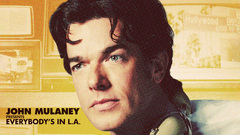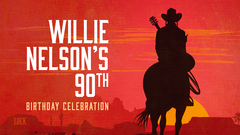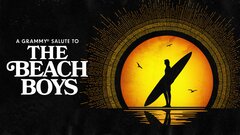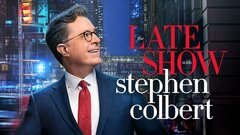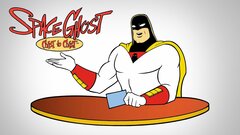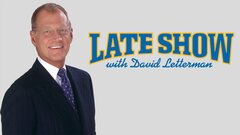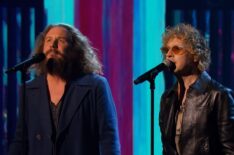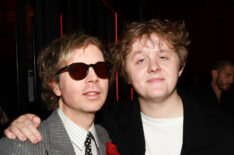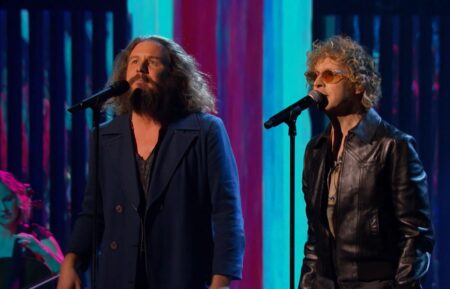An influential figure in the alternative rock movement of the late 1990s and beyond, Grammy winner Beck brought together elements from numerous musical genres, from hip-hop and electronica to soul, punk and folk, in a densely layered but nevertheless playful bouillabaisse of sound that reflected the information overload that both plagued and entertained modern music listeners while paying sly tribute to artists and styles gone by.
Initially labeled as a novelty act due to the overwhelming response to his loose, goofy hip-hop spoof/celebration "Loser," he proved naysayers wrong with a string of sonically adventurous albums, including 1996's Odelay and 1999's Midnite Vultures, which posited Beck as a visionary musical deconstructionist with a wry sense of absurdist humor.
He soon settled into a regular routine of alternating between upbeat records like Guero (2005) and Colors (2017) and quieter acoustic folk affairs like Sea Change (2002) and the Grammy-winning Morning Phase (2014). Beck's restless desire to explore the furthest boundaries of popular music went unchecked for decades, minting him as one of the industry's most consistently inventive figures.
Born Beck David Campbell on July 8, 1970 in Los Angeles, Beck was the son of conductor-arranger David Campbell and artist Bibbe Hansen, a former Warhol Factory star whose father, Al Hansen, was a key figure in the Fluxus art movement, which would follow a DIY-collage aesthetic similar to Beck's musical style. Beck, who adopted his mother's surname following his parents' divorce, was an omnivorous observer of his hometown's diverse array of musical genres from '60s-era folk rock to hip-hop, all of which would influence his subsequent music career.
After dropping out of high school in the 10th grade, Beck honed his craft as a street busker while assembling a cassette of home recordings called The Banjo Scene (1988). The following year, he headed for New York to try his hand in the city's growing "anti-folk" scene, a punk-influenced collective of acoustic singer-songwriters. He was back in Los Angeles within a year's time, working odd jobs while appearing at any venue that would grant him a few minutes to play his music.
In 1991, Beck began working with producers Tom Rothrock and Rob Schnapf, who blended the singer's offbeat folk songs with a semi-psychedelic collage of hip-hop beats and audio samples by producer Carl Stephenson. Among the songs recorded in Stephenson's kitchen was "Loser," which would see its first release as a 12" single in 1993 through Rothrock and Schnapf's Bong Load Custom Records label. That same year, Beck also released Golden Feelings, a cassette-only album on the Sonic Enemy Label, and the single "MTV Makes Me Want to Smoke Crack" on Flipside.
But it was "Loser" that attracted the most attention: a loose-jointed, tongue-in-cheek pairing of Beck's stream-of-consciousness raps and a sample of Dr. John's venerable "I Walk on Gilded Splinters" over a relentlessly funky beat, the song was a huge hit on Los Angeles independent radio, especially Santa Monica's KCRW, where influential DJ Chris Douridas became one of Beck's earliest champions. The singer soon found himself courted by numerous major record labels, but eventually chose Geffen Records due to the stipulations of its offer, which paid less than its competitors but granted Beck greater creative freedom, including the option to record for smaller independent labels. Geffen released Beck's Mellow Gold, which featured a reissue of "Loser" as its lead single, in 1994.
The song became an instant hit among younger listeners, reaching the Top 10 on the Billboard singles chart while propelling Mellow Gold to platinum status. "Loser" was branded as an anthem for the "slacker" generation, but critics were sharply divided over Beck, whom many viewed as a novelty act, while others considered him the vanguard of a new movement in alternative music. However, a pair of 1994 releases on independent labels helped to sway many skeptics to Beck's cause: Stereopathetic Soulmanure, from Flipside, compiled a number of raucous lo-fi home recordings that hewed closer to the aural assault of art-minded bands like Sonic Youth, while One Foot in the Grave, issued by Calvin Johnson's K Records, featured stripped-down acoustic songs. While neither record charted, the support of high-profile fans like Tom Waits and Allen Ginsberg helped to convince many critics that Beck's talents extended beyond the scope of "Loser." Beck would spend much of the following year promoting Mellow Gold on tour, including performances on the main stage for the fifth season of Lollapalooza.
In 1996, Beck released his second album for Geffen, the sonically ambitious Odelay. Produced by Beastie Boys collaborators the Dust Brothers, the album found Beck cross-pollinating soul, hip-hop, lo-fi folk and jazz with his producers' trademark barrage of vintage rock and funk samples and orchestral arrangements by his father. The album soared to double-platinum sales, with its lead single, "Where It's At," claiming the Grammy for Best Male Rock Vocal, while subsequent releases from the record like "Devils Haircut" and "The New Pollution" also achieved chart status.
Beck soon set to work on his next album, a collaboration with producer Nigel Godrich, who had just completed Radiohead's breakout record, OK Computer. The album, Mutations (1998), offered a more psychedelic sound than its predecessor, with elements of '60s-era Brazilian tropicalia and folk-blues replacing the audio samples and upbeat tones of its predecessor. Originally intended for release on Bong Load Records, the album was instead issued by Geffen, which reneged on its original agreement to let Beck deliver albums to independent labels. The singer then sought to void his contract with both labels, which resulted in lawsuits for breach of contract from both Geffen and Bong Load. The legal actions stretched over a period of several years before all parties agreed to resolve their issues on amicable terms. Mutations would later win Best Alternative Music Performance at the 1999 Grammy Awards.
Beck soon followed this with Midnite Vultures (1999), an amusing tribute-cum-satire of bedroom-minded funk and soul a la Prince or Marvin Gaye. Though a high-energy record on par with Odelay, as well as a Grammy nominee for Best Album, it failed to generate the same level of sales as its predecessor, though a massive world tour in support of the record made up some of the difference in sales.
After contributing to a wide variety of recordings, including the soundtrack for Moulin Rouge (2001) and French electronica duo Air's 10,000 Hz Legend (2001), Beck released his next album, Sea Change (2002). Again produced by Nigel Godrich, the record harkened back to his work on Mutations with its low-key acoustic material, all fashioned around a central theme of a love affair at its end, a situation Beck was going through in his own life with the end of his long relationship with designer Leigh Limon. Sea Change became Beck's first CD to reach the Top 10 on the Billboard albums chart while generating overwhelmingly positive reviews from the media. A solo acoustic tour preceded a post-release jaunt with fellow neo-psychedelic outfit the Flaming Lips, which served as both his opening and backing band.
After a two-year hiatus, Beck returned with a flurry of new material, including his sixth album, Guero (2004), which featured a return to the ebullient Odelay sound, as well as that album's producers, the Dust Brothers. Though the record earned mixed reviews upon its release, it became his second Top 10 album on the strength of its singles "E-Pro" and "Girl."
An EP featuring remixes of four songs from Guero preceded Guerolito (2005), a full remix of the entire Guero album. His seventh album, The Information (2007), which marked the beginning of a two-record contract with Interscope Records, again reunited him with Godrich for a project that blended the upbeat sounds of Guero with the more introspective work of Sea Change. It became his third consecutive record to reach the Top 10 on the albums chart.
The following year, Beck teamed with producer Danger Mouse for Modern Guilt (2008), an acoustic-driven album built around some of the darkest material ever penned by Beck. Mixed reviews again greeted the record upon release, as well as lower sales than its predecessor, though it earned a 2008 Grammy nomination for Best Alternative Album.
Beck worked on a number of projects between 2009 and 2012, most notably a series of informal experiments in which he and other musicians would record covers of acclaimed albums, including The Velvet Underground and Nico (1967) and Skip Spence's Oar (1969), in a single day. An array of popular alternative artists joined him on these efforts, including members of Wilco, Devendra Banhart, Feist and Jamie Liddell.
The following year, he contributed songs to the soundtracks for "Scott Pilgrim vs. the World" (2010) and "The Twilight Saga: Eclipse" and remixed singer Lykke Li's "Get Some." Between 2010 and 2012, he collaborated with a vast array of artists, including country singer Dwight Yoakam, blues-rocker Jack White, actress-musician Charlotte Gainsbourg, Brazilian performer Seu Jorge, punk legend Thurston Moore and comedian Donald Glover as his rap alter ego, Childish Gambino. Returning to a more conventional recording structure, Beck released Morning Phase (2014), a return to the quiet acoustic feel of Sea Change that won the coveted Album of the Year Grammy in early 2015.
Beck returned to the studio with producer Greg Kurstin (Adele, The Bird and the Bee) for Colors, an upbeat electronic set that the singer-songwriter described as his attempt to make a straightforward modern pop album; the album was released to generally positive reviews in 2017. Beck followed that album with another pop-oriented collaboration, this time with producer-writer Pharrell Williams, on 2019's Hyperspace.
